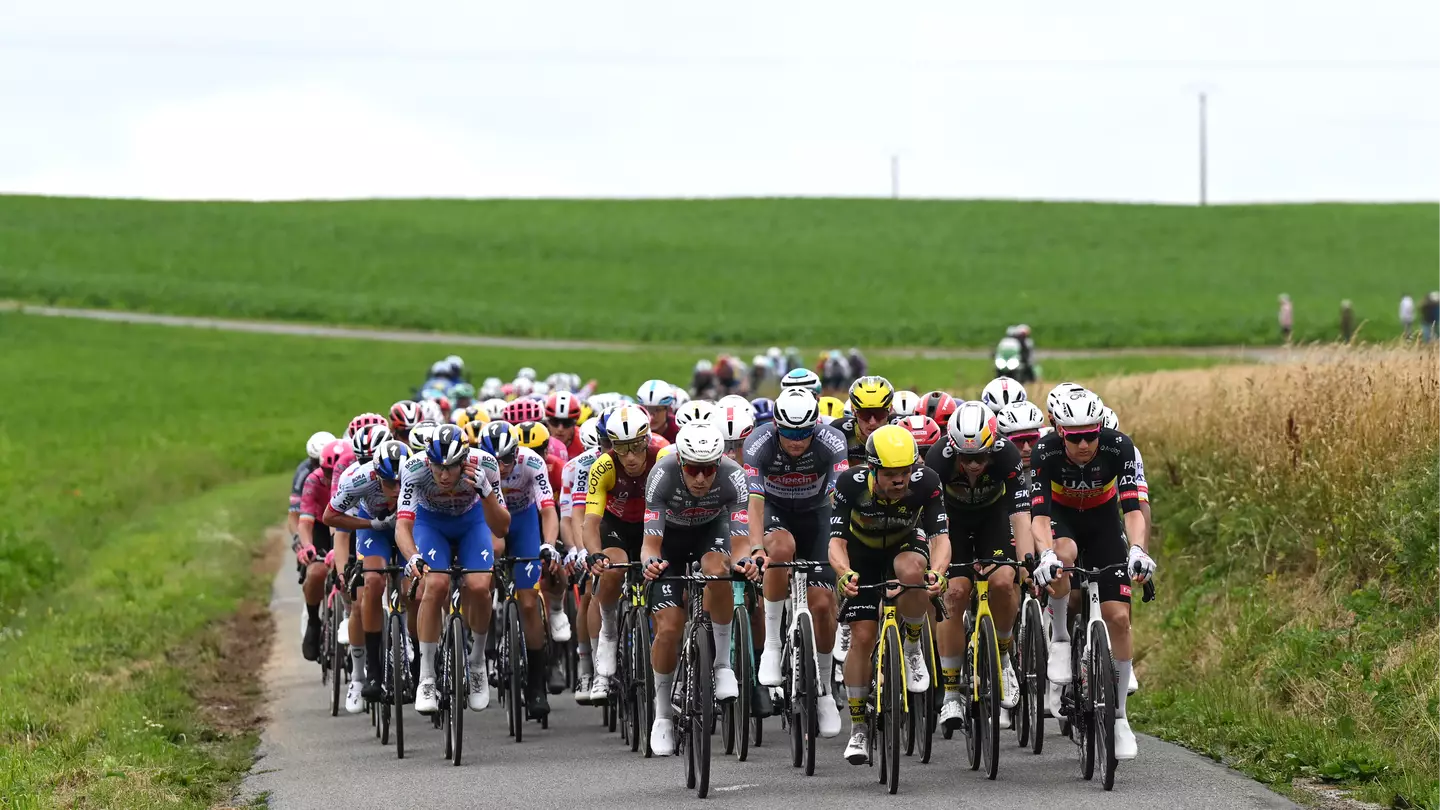
Tour de France riders could face up to 14 day bans due to the new yellow card ruling that is set to be introduced for the 2025 event.
The 112th edition of the Tour de France kicked off in Lille on Saturday, and continued in Lauwin-Planque on Sunday, with Belgian Jasper Philipsen claiming first in Stage One, and Dutch rider Mathieu van der Poel emerging victorious in Stage Two.
Riders, though, will face a much different Tour in 2025 following the introduction of the yellow card rule.
Aggressive, dangerous or unsporting behaviour will be subject to review in what is being dubbed the Tour de France version of the Video Assistant Referee (VAR).
Advert
VAR has drawn widespread criticism from football supporters since its implementation, with the time taken to make decisions the biggest gripe.
England were on the receiving end of a controversial VAR call at the weekend as they fell to defeat to France at the 2025 Euros.
Tour de France viewers are hoping that the cycling equivalent will be a far smoother process as Stage Three kicks off in Valenciennes on Monday.

What can cards be dished out for?
The card system was trialled last year and is now being introduced to World Racing in the UCI’s bid to expand its disciplinary repertoire.
Advert
Cards can be awarded from anything ranging from bad behaviour to celebrating a teammate’s success, and everything in between.
If during the Tour a rider is given two yellow cards during a race, he may be disqualified and suspended for seven days.
Riders handed three yellow cards in 30 days are liable to be suspended for 14 days, heavily impacting their chances of success at the Tour de France.

VAR in action earlier in the year
Dutch rider Oscar Riesebeek was the first to be suspended under the new system having received two yellow cards in three days earlier this year.
Advert
“Looking back, I realise my behaviour in the race was not only wrong, but also put fellow riders at risk,” Riesebeek said of his suspension at the time.
The decision to dish out a yellow is subject to interpretation, with a “sticky bottle” – where a rider holds onto a drinks bottle passed by his team car for too long – among offences.
Assault, intimidation, threats and improper conduct, among others, are the more serious offences that will be sanctioned.
The decision to implement yellow cards haven’t been welcomed across the board, however, with the UCI accused of overzealous rule making.
Cameras will help make informed decisions
Cameras will also be used to detect signs of technical fraud as well as punishing offenders at the Tour de France.
Advert
“Anything that arouses suspicion will be identified, enabling better targeting of checks,” the UCI said.
UCI jury member and commissaire Kenneth Simonsson added: “We have five motorbike cameras, two helicopters and fixed cameras in the finish area, totalling 14 different feeds, during the stage. We record any incidents and share it with our jury colleagues, to discuss after the race.”
Topics: Cycling, Tour De France, VAR